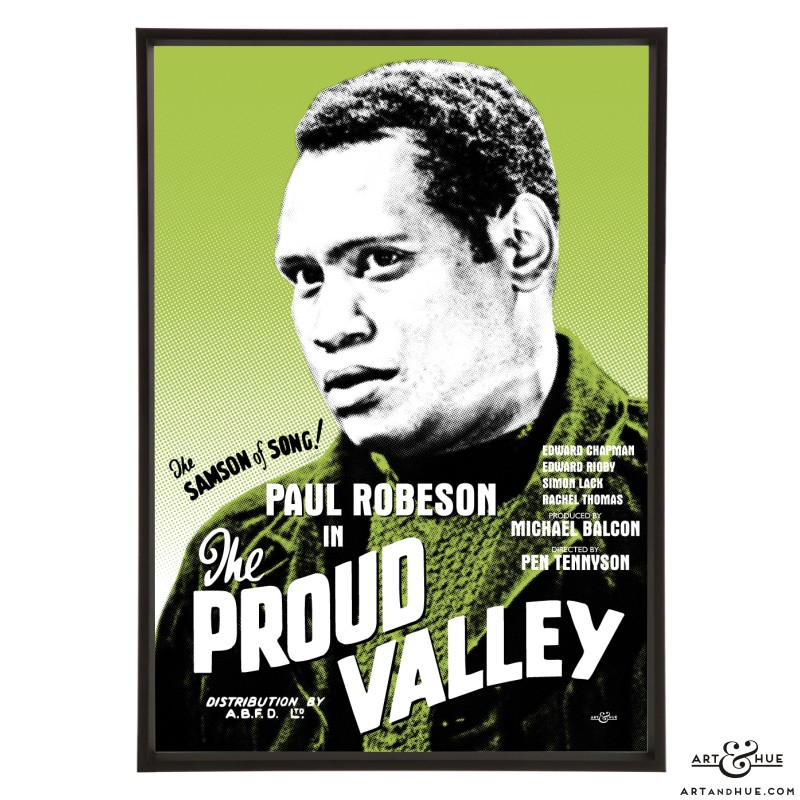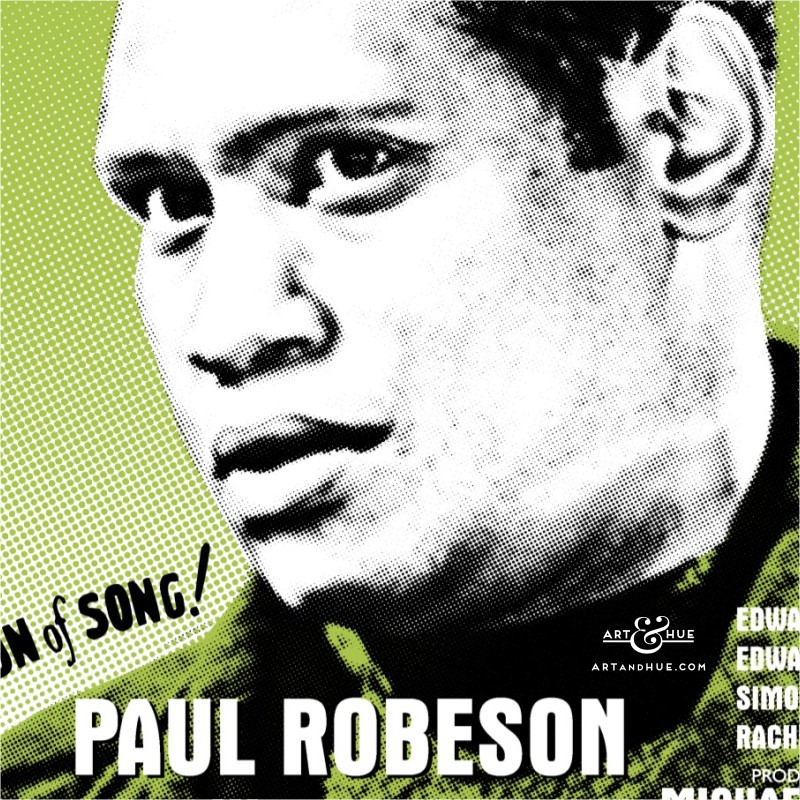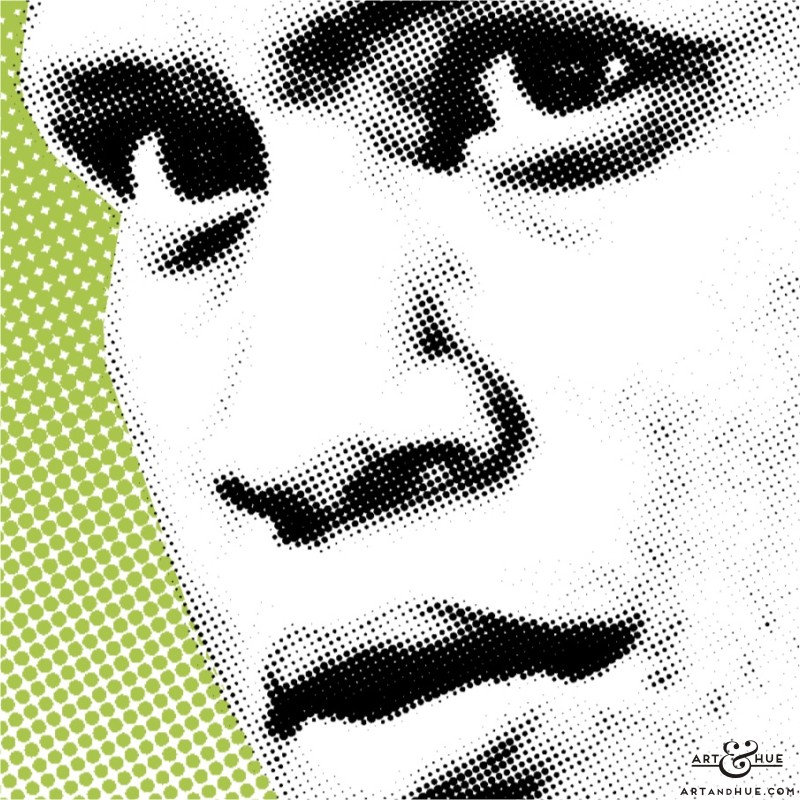Paul Robeson in “The Proud Valley” pop art print
A successful sportsman, singer, actor, and campaigner, Paul Robeson became an honorary Welshman through his close association with the mining community in Wales, visiting frequently to perform and starring in the Welsh film “The Proud Valley” made by Ealing Studios.
Filmed in Wales in 1939, at locations including Llantrisant, the film mirrors the true-life event when a group of South Wales miners walked to London to highlight the hardship being endured by thousands of unemployed miners and their families.
While he was starring in “Show Boat” in London’s West End, Robeson immediately joined the miners’ protest to march and sing with them, subsequently donating their train fares back to Wales. He formed a strong bond with the Welsh miners which saw him visit and perform across Wales frequently between 1929 and 1939.
In later years, Robeson wanted to return to Wales but was unable to because of his political views; the US Government’s McCarthyism branded him un-American and withdrew his passport in response to his campaigning on civil rights and trade unionism.
To enable participation in the Miners’ Porthcawl Eisteddfod of 1957, a transatlantic phone link was set up to a studio in New York from where Robeson sang down to the line to the joy of the audience.
South Wales miners petitioned the US Supreme Court to reinstate Robeson’s passport which finally allowed him to attend in 1958. His long-term friend Aneurin Bevan, the founder of the NHS, introduced Robeson to sing on the eve of the Eisteddfod in Ebbw Vale to a reported audience of 9,000. He told the audience “you have shaped my life. I have learned a lot from you. I am part of the working class. Of all the films I have made the one I will preserve is The Proud Valley.”
A superstar African American actor and singer, Robeson headlined many British films throughout the 1920s, 30s, & 40s including “The Emperor Jones”, “Song of Freedom”, “Big Fella”, “King Solomon’s Mines”, and “Jericho” to name a few. Whilst he disowned some of his previous films, he was pleased with “The Proud Valley” which marked the film debut of Rachel Thomas.
In December 1939, the film was unofficially previewed in Neath Port Talbot and was very well received by the Welsh audience who commented on the authenticity of background and detail.
The first film to premiere on radio, on the 25th of February 1940, it was first screened to the trade & cinema bookers on the 9th of January 1940 before opening to the public on screens nationwide, including the Birmingham Gaumont and the Middlesborough Hippodrome, from the 3rd of March 1940 onwards, and in London at the Leicester Square Theatre on the 8th.
Art & Hue presents Welsh Ffilm, stylish pop art inspired by classic Welsh films & actors from Mid-century cinema.
An official collaboration with Studiocanal, the Welsh Ffilm pop art collection is available in 3 sizes & 20 colours, printed on museum-quality archival card of 310gsm, made from 100% cotton, with fine-art pigment inks for longevity, exclusively by Art & Hue.
Available in A4, A3, and A2 sizes to fit standard-size picture frames. Please note that black frame is not included – for a guide on choosing a frame size, visit here.
Rewatch, or discover anew, the film on DVD & Bluray from Amazon:
“The Proud Valley” Copyright © STUDIOCANAL Films Ltd. (1939). All rights reserved.
Copyright © Art & Hue® 2021. All rights reserved.
 Art & Hue
Art & Hue
























